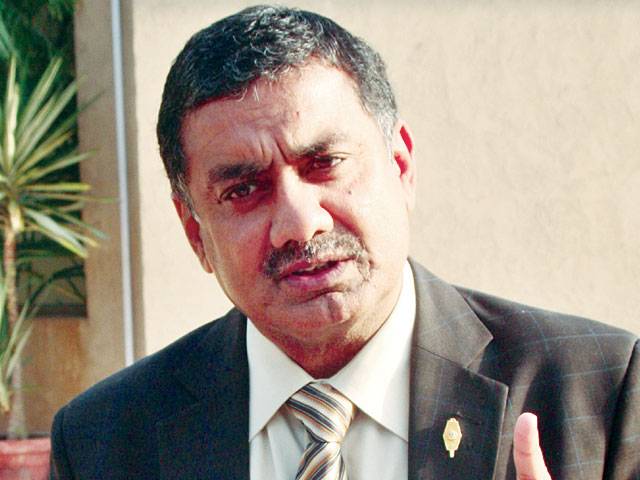LAHORE – SALMAN ABDUHU - Most of the industries, including pharmaceutical sector, will also benefit after granting status of MFN to India by Pakistan as various industries will get cheaper raw material in a short period, paving the way to enhance export of finished products.
Former President of Pakistan Chemicals & Dyes Merchants Association Khawaja Khawar Rashid was talking to The Nation here on Wednesday. He said that local manufacturers particularly the Pakistan Pharmaceutical Manufacturers Association (PPMA) had been expressing serious concern on granting the MFN to India.
By granting an MFN status to India we will simply be treating Indian goods at par with similar goods from other countries for tariff/tax purposes. The goods which now enter Pakistan via Dubai and Afghanistan (through informal channels) will become importable through legal channels. Consequently, not only the cost of imported goods will go down but the government will also gain from enhanced revenues from such goods, he added.
He said that the country imports Indian goods of up to $3 billion through informal trade via Dubai and Singapore, and if this trade is allowed from India directly in a legal way the cost of trade will go down enormously, besides improving the government revenue, trade and industry experts said.
He said that by removing non-tariff barriers from her side India could pave the way for Pakistan to enhance its trade and to narrow down the trade deficit. He said the unauthorised trade could be converted to legal business through frequent interaction between both the countries chambers and trade associations, which will stop smuggling entirely and lower the const significantly.
Presently the regional trade of south Asia is just 4 percent which should be enhanced to a high level in the interest of the public of all the countries in the region, he said. He said that Pak-India official trade is of $2 billion out of which $0.6 billion is export while $1.4 billion is import. He stressed the need for enhancing this trade balance with the neighbouring country. Former chairman of Pakistan Chemicals & Dyes Merchants Association believes to enhance bilateral trade between two countries, with regular exchange of trade delegations and interaction between the leading trade associations with active participation in exhibitions of two countries.
He said that Pakistan exported goods valued $ 268.33 million and imported $ 1.03 billion in 2009-10 whereas, Pakistan suffers a trade deficit with India and Trade is in Indian favour. He observed that Pakistan imports some Indian items through informal trade via Dubai & Singapore which is estimated around $ 2-3 billion per year, and this trade could obviously be undertaken bilaterally at significant lower cost.
But it must be remembered that trading with India on the MFN basis will not automatically translate into a quantum jump in trade unless other stumbling blocks are removed. For example, India needs to take concrete steps to allay the fears of Pakistani businessmen that non-tariff barriers imposed by India are big hurdles to market access in India. The non-tariff barriers that the Pakistani businessmen generally face in India fall into three main categories.
The first relates to packaging, labelling, certification and other testing requirements. What we need is harmonisation of certification and testing procedures.
“We may identify such requirements in each sector and accredited labs and institutions should be notified with mutual consultation between the two countries.
The certification by such institutions should be acceptable to both sides.
Similarly, letters of credit opened by the banks of one country should be acceptable to the other side. A large number of import items in India require import licenses, which also act as non-tariff barrier. According to a study, a one-day delay in granting of an import license in middle-income countries could be equivalent to a considerable tariff, such as 0.4 percent in textiles,” Khawaja Khawar said.
He said that the second category of Indian non-tariff barriers relate to transparency issues. For example, information on tariffs, additional duties and taxes, and concessionary notifications is scattered in various publications. The third category which is of particular concern for Pakistan relates to the subsidies given by India to its farmers. Fat subsidies to the agriculture sector in India may render our farmers uncompetitive in the market.
Thursday, April 25, 2024
Pharma sector to also benefit from MFN status to India

8:13 AM | April 25, 2024
Bushra Bibi was poisoned during Ramazan, says spokesperson
8:39 PM | April 25, 2024
Faisal Vawda, Abdul Wasay sworn in as senators
8:38 PM | April 25, 2024
Received no complaint of interference in judiciary since assuming charge as CJP: Faez Isa
8:37 PM | April 25, 2024
No country ready to invest in Pakistan: Omar Ayub
8:36 PM | April 25, 2024
Army Commanders pay tribute to martyred customs officials
8:34 PM | April 25, 2024
Academic Uprising
April 24, 2024
Cooperation Momentum
April 24, 2024
Facing Reality
April 24, 2024
Absent Academia
April 23, 2024
Murree’s Redemption
April 23, 2024
Ending animal suffering
April 25, 2024
AI governance
April 25, 2024
AI concerns
April 25, 2024
Population paradox
April 24, 2024
Unveiling differences
April 24, 2024
ePaper - Nawaiwaqt
Advertisement
Nawaiwaqt Group | Copyright © 2024





